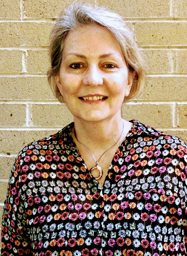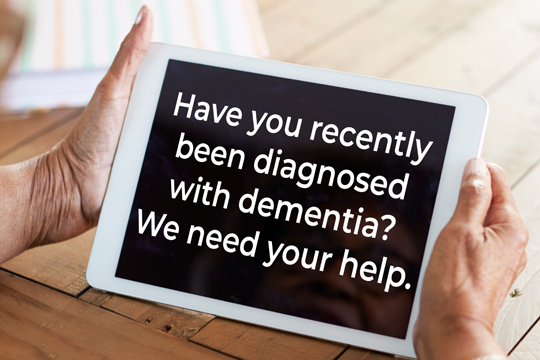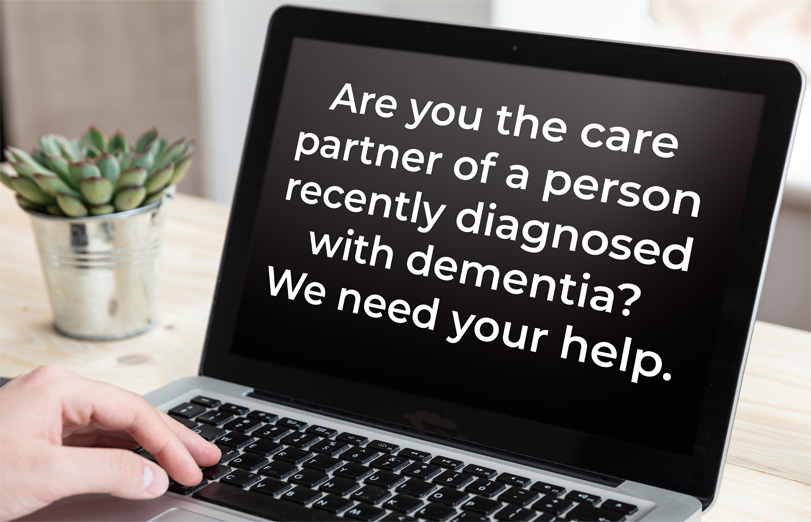14 Jul 2020


Study Coordinator
Many people currently living with dementia never receive a formal diagnosis. Although exact figures for Australia are unknown, it is estimated that between 44 and 70% of people with dementia in the UK and Canada – countries with similar health care systems to ours – remain undiagnosed. According to Alzheimer’s Disease International this ‘treatment gap’ is even greater in low and middle income countries; one study in India suggested 90% of people remain undiagnosed.
The fear of dementia sometimes discourages people from seeking a diagnosis. Sometimes, the doctor may believe that as there is no cure or that giving a diagnosis will only cause unnecessary distress.
Diagnosis is fundamentally important.
Diagnosis can provide a gateway to receiving organised support and services. While there is no cure for dementia, much can be done to improve the day-to-day functioning, general health, wellbeing and quality of life for people living with dementia and their care partners. There are interventions and schemes to provide psychological, social, and even financial support for people whose cognitive capacity has deteriorated. There are also opportunities to receive advice about planning for the future that gives many people peace of mind.
It is a misconception that once a person is diagnosed with dementia that it is too late to receive help.
However, diagnosis needs to be early enough in the disease to make effective use of helpful supports and strategies to improve quality of life.
Researchers within the COGNISANCE project led by UNSW Sydney’s Centre for Healthy Brain Ageing (CHeBA), in collaboration with World Health Organisation, Alzheimer’s Disease International, Dementia Alliance International, Dementia Australia, the Universities of Sydney and Wollongong, are leading an international project designed to improve the experience of dementia diagnosis and post diagnostic support. They will do this by developing critical and valuable toolkits for people with dementia, their care partners and health care professionals, as well as mounting an awareness campaign. These toolkits will give people seeking a diagnosis and their family members the confidence and understanding of what to expect during and after the diagnosis.
It will also help GPs and other health care practitioners to know how and what they can do to improve the quality of life for people with dementia and their families. This initiative should also help reduce stigma and ultimately increase rates of diagnosis in a timely manner.
What can you do?
If you have received a diagnosis of dementia in the past two years, you support a person recently diagnosed with dementia or you are a health care professional – we need your help. Your involvement in completing a short survey will help create a better future in dementia diagnosis and support.
The survey will take about 15-20 minutes to complete.
Please find the online survey for people diagnosed with dementia and care partners here: http://unsw.to/cognisance1
For more information or if completing the survey online is difficult, please contact the research coordinator at UNSW on (02) 9385 2597 or at m.gresham@unsw.edu.au to arrange to have a survey sent to you, or if required, an interview over the phone or online.
The survey is entirely voluntary. There are no costs or payment associated with participation in this research study.
 |
 |
 |
Alzheimer’s Australia. (2013). Living with Dementia in Regional NSW discussion paper 8. Alzheimer’s Australia NSW. Living with dementia in regional NSW. (2013) Retrieved from https://www.dementia.org.au/files/20131113-NSW-PUB-Dementia_in_regional_NSW.pdf
Bauer, M. et.al. (2019) Identifying support needs to improve rural dementia services for people with dementia and their carers: A consultation study in Victoria, Australia. The Aust J Rural Health. 27 (1) 22-27. https://doi.org/10.1111/ajr.12444
Goeman, D et al. (2016) Development of a model of dementia support and pathway for culturally and linguistically diverse communities using co-creation and participatory action research. BMJ Open. 2016; 6(12): e013064. Published online 2016 Dec 7. doi: 10.1136/bmjopen-2016-013064
Lang, L., et al., (2017) Prevalence and determinants of undetected dementia in the community: a systematic literature review and a meta-analysis. BMJ Open. 7(2).
